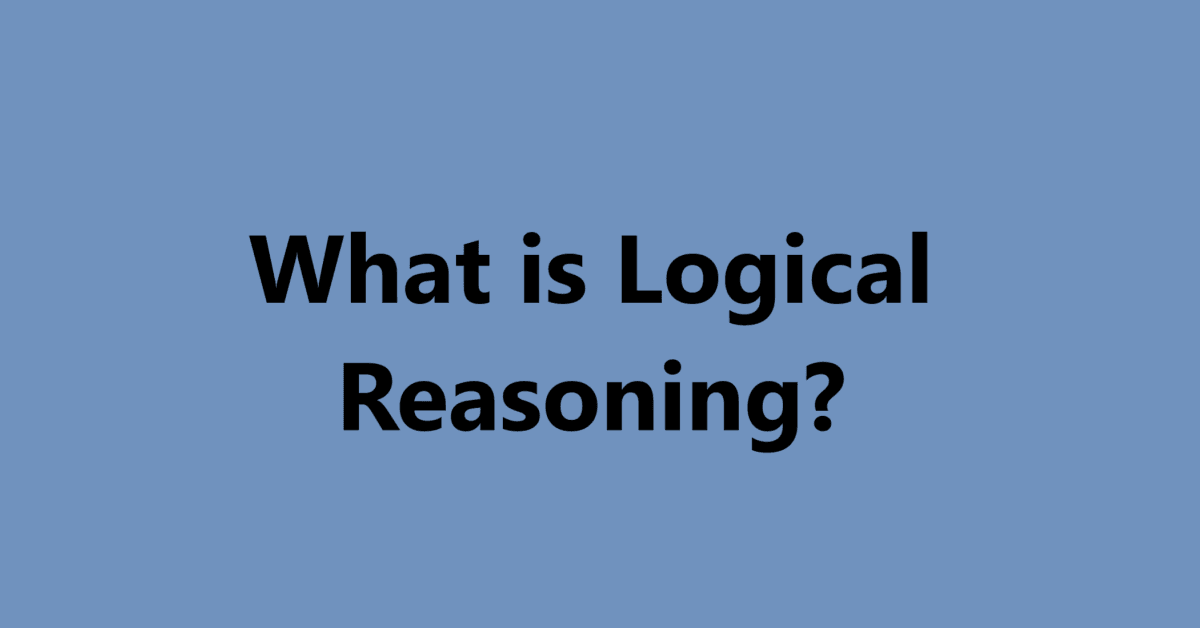Logical reasoning refers to the process of using structured thought patterns to analyze and evaluate arguments or situations, drawing conclusions based on available information. It is a fundamental skill utilized in numerous domains, including mathematics, science, law, and everyday problem-solving. Logical reasoning encompasses identifying relationships, making inferences, and deriving conclusions based on premises.
There are two primary types of logical reasoning:
- Deductive Reasoning: This involves starting with a general statement or hypothesis and examining the possibilities to reach a specific, logical conclusion. For example, if all humans are mortal and Socrates is a human, then Socrates is mortal.
- Inductive Reasoning: This involves looking at specific observations and making broader generalizations based on those observations. It doesn’t guarantee that the conclusion is true, as it considers the likelihood based on the given evidence.
Logical reasoning tests are commonly found in competitive exams, aptitude assessments, and various job selection processes. They evaluate one’s ability to think clearly, analyze problems, and come up with logical solutions.
Types of Logical Reasoning Questions
- Syllogisms: These questions present statements, often in the form of “All A are B” or “Some A are not B,” followed by a conclusion. Candidates must determine the validity of the conclusion based on the premises.
- Analogies: Here, two pairs of words or phrases are compared. You need to determine the relationship between the first pair and then find a word or phrase that has the same relationship with the second pair.
- Series Completion: Candidates are presented with a sequence of numbers, letters, or shapes, and must identify the pattern to complete the series.
- Data Sufficiency: These questions provide data and ask whether the given information is sufficient to answer a specific question.
- Critical Reasoning: These questions involve analyzing arguments, identifying assumptions, and evaluating the strength of the reasoning presented.
How to Clear Logical Reasoning Exams
- Understand the Basics: Familiarize yourself with common logical reasoning concepts, terms, and techniques. Understanding terms such as premises, conclusions, fallacies, and validity is fundamental.
- Practice Regularly: Like any skill, logical reasoning improves with practice. Use question banks, online resources, and prep books specifically designed for logical reasoning. Regularly solving different types of logical reasoning questions will build familiarity and confidence.
- Take Mock Tests: Simulate exam conditions by taking timed mock tests. This helps you become accustomed to the pressure of a timed environment and improve your time management skills.
- Analyze Your Mistakes: After completing practice questions or mock tests, review your incorrect answers. Understanding why you made mistakes is crucial for improving future performance.
- Learn to Identify Patterns: Many logical reasoning questions are built on recognizable patterns. Spend time analyzing sequences, relationships, and common logical constructs so you can quickly recognize them during the exam.
- Use Elimination Techniques: In multiple-choice questions, eliminate clearly incorrect answers first. This increases the chances of choosing the right answer from the remaining options.
- Stay Organized in Problem-Solving: Break down complex problems into smaller, manageable parts. Write out the information you know, visualize relationships or create diagrams, and methodically work through the problem.
- Time Management: During the exam, manage your time efficiently. If you encounter a particularly difficult question, don’t spend too much time on it—mark it and move on, returning to it later if time allows.
- Stay Calm Under Pressure: Test anxiety can hinder logical thinking. Practice relaxation techniques, such as deep breathing or mindfulness, to maintain focus during the exam.
- Familiarize Yourself with Common Logical Fallacies: Understanding common reasoning errors can help you identify faulty arguments in critical reasoning sections, improving your ability to evaluate arguments effectively.
Resources for Preparation
- Books: Look for logical reasoning preparation books such as “A Modern Approach to Logical Reasoning” by R.S. Aggarwal or “Logical Reasoning” by Arun Sharma.
- Online Courses and Tutorials: Platforms like Khan Academy, Udemy, and Coursera offer courses on logical reasoning skills.
- Apps: Consider using mobile apps designed for logical reasoning practice, providing interactive quizzes and flashcards.
Conclusion
Mastering logical reasoning requires practice, patience, and a systematic approach to problem-solving. By understanding common question types, honing your analytical skills, and consistently practicing, you can enhance your logical reasoning abilities and perform better in exams. Remember, the goal is to think critically and logically, and with dedication, you’ll be well-prepared to clear any logical reasoning exam. Good luck!


